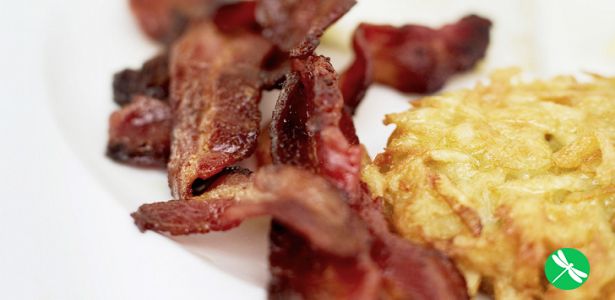How many times have you avoided a certain food because it contains an uncomfortable level of fat? How many different magazines and web articles have you read that bash different fats? They warn you that they’re bad for you and will, in turn, make you fat. There are also other “bad” ingredients, including sugar, which often battles fat content for first place in the race of “foods that are terrible for your body.” If you love creamy avocados, buttery toast, or a juicy, fatty steak, then you’ll be happy with recent research! There is growing evidence suggesting that when eaten in isolation, fat does nothing to contribute to weight gain.
Eat Fat, Get Fat Debunked
“Eat fat, get fat” has long been understood as conventional nutritional wisdom. Not only has this mentality driven millions of Americans toward fad diets and fat-free regimes, but it’s also done little to lower obesity rates. The more research accomplished in the area of fat consumption, the more experts believe a fat-free diet to be dangerously misguided.
Aaron Carroll, professor of pediatrics at the Indian University School of Medicine, writes in his book,
The Bad Food Bible: How and Why to Eat Sinfully, that “There is one thing we know about fats… Fat consumption does not cause weight gain. To the contrary, it might actually help us shed a few pounds.” (1, 3)This means that we should all rethink our relationship with avocados, nuts, salmon, and nutrient-rich butter and oils, as well as many foods high in sugar. If you banned any high-fat foods back in the 1990s when low-fat dieting was the craze, now’s the time to bring them back and put your high-sugar foods in the hot seat instead. A recent study discovered that drinking sugar-sweetened beverages, such as sodas or juices, is directly associated with an increase in death risk. People who drink at least two sodas per day heighten their risk of death.
Fat Isn’t The Weight-Gain Culprit – Sugar Is!
Keep in mind that processed and refined-carbs in no way get a free pass. In fact, when The Lancet compared 135,000 people with low-fat diets against people with low-carb diets and made an interesting discovery. They found that:
High carbohydrate intake was associated with a higher risk of total mortality, whereas total fat and individual types of fat were related to lower total mortality. Total fat and types of fat were not associated with cardiovascular disease, myocardial infarction, or cardiovascular disease mortality.
The study went so far as to recommend a reconsideration of global dietary guidelines. Fats regained their place in the “good food” categories and carbohydrates, however unfortunate, did not.
Time and time again, research reveals that a diet with a restrictive fat intake does not promote weight loss nor provide gains in terms of health benefits. However, people who consume high-fat diets and lower their refined carbohydrate intake (such as white bread and rice) are more likely to lose weight and see additional health benefits. The reason for this is quite simple! Doctors and dietitians are finding that sugar promotes weight gain. Additionally, they’ve discovered that refined carbohydrates quickly get broken down by the body into sugars, and therefore prevent weight loss and promote weight gain.
Conclusion
Bagels, white bread, pancakes, and more are all delicious foods. This is the simple truth. But when it comes to overall health and weight loss, they’re not your friends. Consider adding more fish, nuts, avocados, and authentic oils to your diet rather than restricting your fat intake and cut down on your sugar and refined carbohydrate consumption. Your body will be healthier for it!

